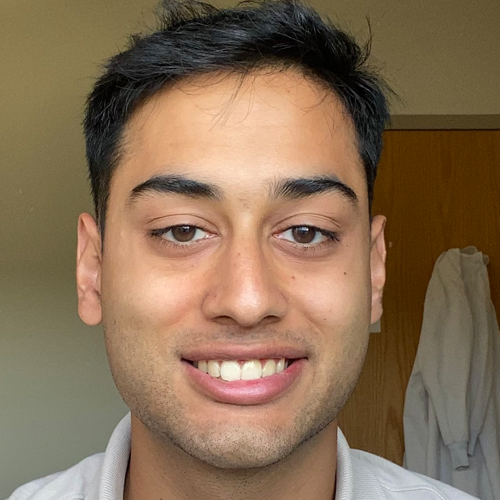The 21st annual Safar Symposium and 14th annual Multi-Departmental Trainees’ Research Day was held on April 25-26, 2024. Building upon the Peter and Eva Safar Lectureship established in 1980 by Peter M. Winter, MD (former chair of the Department of Anesthesiology and Critical Care Medicine), this yearly event is rooted in the legacy of Peter Safar, MD, (founding chair of the Department of Anesthesiology and Critical Care Medicine) and his wife Eva for their contributions to the scientific community and highlights current research spanning the spectrum of Dr. Safar’s interests. The theme of the 2024 event was Continuum of Care in the Treatment of Hypoxic Ischemic Insults.
The first day of the symposium kicked off with a series of enlightening presentations:
- “Treatment for Neonatal Hypoxic-Ischemic Encephalopathy: Hypothermia and Beyond” by Abbot Laptook, MD, Professor of Pediatrics, Warren Alpert Medical School of Brown University, Division of Neonatal-Perinatal Medicine, Women and Infants Hospital of Rhode Island.
- “Role of Spreading Depolarization in Hypoxic-Ischemic Brain Injury after Cardiac Arrest” by Jed A. Hartings PhD, Professor, Department of Neurosurgery, University of Cincinnati.
- “Time is Brain (Again): Circadian Biology and Stroke” by Eng Lo, PhD, Professor of Neurology and Radiology, Harvard Brain Science Initiative, Harvard University, Massachusetts General Hospital.
- “Pediatric Resuscitation—Biomarkers, Imaging, Social Determinants of Health, and Outcomes” by Ericka L. Fink, MD, MS, FCCM, Professor, Division of Pediatric Critical Care Medicine, Pediatrics, and Clinical and Translational Science; Associate Director, Safar Center for Resuscitation Research; Research Director, PCCM Fellowship Director, Critical Illness Recovery for ChiLdrEn (CIRCLE) Program, UPMC Children’s Hospital of Pittsburgh.
- “Functional Recovery During Rehabilitation of Children with Hypoxic Ischemic Brain Injury” by Beth Slomine, PhD, ABPP, Assistant Vice President; Psychology Co-Director, Brain Injury Clinical Research Center, Kennedy Krieger Institute; Professor, Psychiatry and Behavioral Sciences, Johns Hopkins School of Medicine.
- “Hypoxic Ischemic Brain Injury in Abusive Head Trauma” by Caitlin McNamara, MD, Clinical Instructor, Pediatric Critical Care Medicine, UPMC Children’s Hospital of Pittsburgh; NIH T32 Post-Doctoral Scholar, Safar Center for Resuscitation Research, University of Pittsburgh, Pittsburgh, PA.
The morning sessions were followed by the Multi-Departmental Trainees’ Research Day, a collaboration between our department and the Departments of Critical Care Medicine, Emergency Medicine, Neurological Surgery, and Physical Medicine & Rehabilitation, as well as the Winter Institute for Simulation Education and Research (WISER). Thirty-three total posters were showcased, including 16 posters from trainees in our department.
 |
The first-place Anesthesiology Abstract/Poster Award went to Sarvesh Acharya (mentors: Kenny Roman, PhD, and Bradley Taylor, PhD) for his poster presentation “Mast Cells and VEGFR2 Drive Chronic Pelvic Pain in a Mouse Model of Endometriosis.” Sarvesh also received the STEM Award for the best scientific poster/abstract for this work at the Frederick Honors College Annual Research Symposium on March 29th of this year. |
 |
The second-place Anesthesiology Abstract/Poster Award went to Daniela Gil (mentors: Sean P. Farris, PhD, and Gregg E. Homanics, PhD) for her poster presentation “Regulation of Ethanol Consumption by the lncRNA Malat1.” |
The first day’s afternoon session featured five oral presentations from one trainee in each of the collaborating departments. Sydney Callenberger from the lab of Bradley Taylor, PhD, and our department, gave the Anesthesiology oral presentation “Oxytocin Receptor in the Spinal Neuraxial Modulation of Ventricular Excitability.”
Clifton W Callaway, MD, PhD, Distinguished Professor and Executive Vice Chair in the Department of Emergency Medicine in the University of Pittsburgh School of Medicine, presented the 43rd Peter and Eva Safar Annual Lecture in Medical Sciences and Humanities, “Impact of Withdrawal of Life Support on Resuscitation Science.”
The second day of the symposium, moderated by WISER Director Paul E. Phrampus, MD, embraced the theme of Simulation and Patient Safety. Distinguished speakers presented insights into leveraging simulation to enhance patient care:
- “Safety I & Safety II: Simulation Was Made for Both” by Elizabeth (Lisa) Sinz, MD, MEd, FCCM, FSSH, Professor of Anesthesiology and Surgery, West Virginia University (WVU) School of Medicine; Associate Medical Director, Critical Care & Trauma Institute, WVU Medicine.
- “Using Simulation to Elevate Surgical Airway Management and Patient Safety: Past, Present, Future” by Charles Lin, MD, MSc, Assistant Professor, Department of Anesthesiology and Perioperative Medicine, University of Pittsburgh School of Medicine.
- “Simulation for Prospective Hazard Analysis” by Lisa T. Barker, MD, MHPE, DipABLM, Medical Director, Jump Simulation, OSF HealthCare; Clinical Associate Professor of Emergency Medicine, University of Illinois College of Medicine—Peoria.
- “Development of a Simulation-Based Training Course to Increase Anesthesia Provider Knowledge, Competence, and Confidence in Ultrasound-Guided Peripheral Nerve Blockade” by Moriah Adams BSN, RN, and Rachel Honodel, BSN, RN, student registered nurse anesthetists, Nurse Anesthesia Program, University of Pittsburgh.
- “Leveraging Deliberate Practice for Targeted Clinical Experience in a Nurse Anesthesia Training Program” by Joseph S. Goode, Jr, PhD, BA, CRNA, CHSE, Associate Professor; Assistant Program Director; and Vice Chair for Research, Department of Nurse Anesthesia, University of Pittsburgh School of Nursing; CRNA, UPP Department of Anesthesiology and Perioperative Medicine, University of Pittsburgh School of Medicine.
The faculty presentations and the Peter and Eva Safar lecture were recorded and will be available for viewing at a future date on the Safar Center for Resuscitation Research website.
